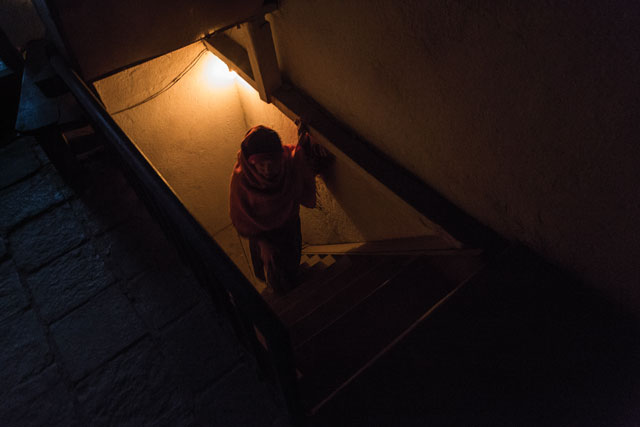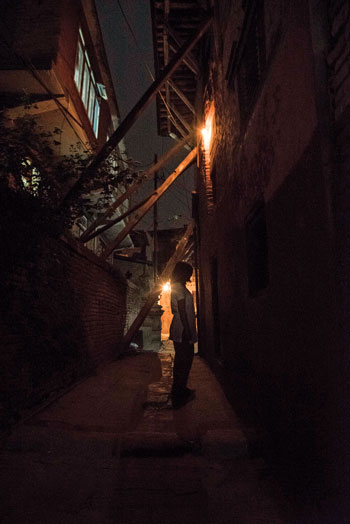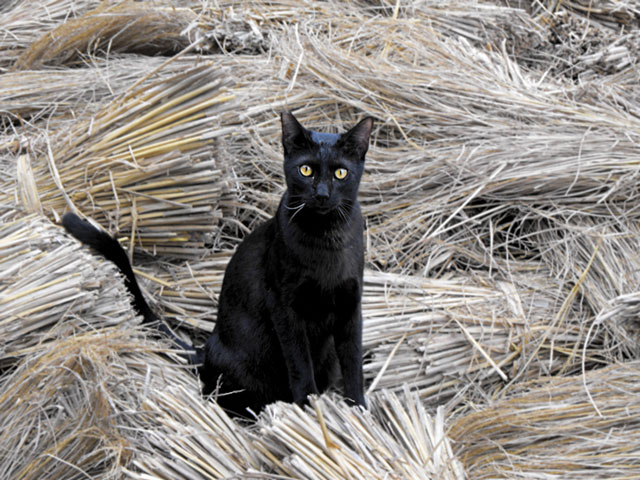If you have lived long enough in Nepal to embrace its uniqueness and call it home, you should by now also have gotten accustomed to the little habits Nepalis have treasured and kept alive. Discover the myths and stories behind these idiosyncrasies.

It wouldn’t be completely wrong to say that Nepal is a peculiar country. From its location, to geography, culture, and what not, the country is anything but ordinary. And, amidst all the weirdness that is stuffed into this little country, there are some peculiar habits that its people strictly follow. Here is a list of popular idiosyncrasies, along with the equally popular and vague reasonings and possible logic behind them.
 Don’t step over elders
Don’t step over elders
Not only is stepping over elders considered disrespectful in Nepal, but it has religious backing, as well, wherein such an act is considered a sin. A Rato Machindranath legend narrates an event regarding this habit we comply with till date. In an attempt to sneak out of the house without awaking his mother who was fast asleep at the doorway, Machindranath spent most of the night carefully parting his mother’s hair away from the door, so as to not commit a sin by stepping over her. All his effort came crashing down when he missed a single strand and stepped over it. It is said that his chest cracked open for having done that, which is also visible in his statue.
Spitting on fallen hair before disposing it
To spit on a ball of fallen hair before disposing it is something we saw and picked up from our mother and grandmothers, and they from their predecessors. The wide belief is that loose hair can be used for voodoo purposes against the person to whom the hair belongs. In order to avoid such a situation, the hair is stained with spit, making it ineligible for any voodoo performance. However, the origin of this idiosyncrasy could be completely different. A popular way to dispose hair in Nepal since ages back is to throw it out of the window; the spit-on-hair process could have been a solution to prevent strands of hair from drifting away in the wind and landing on food.
No trimming of nails after sunset
Trimming nails after hours is considered a jinx in Nepali society, and largely discouraged. One of the reasoning provided for this idiosyncrasy is that, without proper lighting one could end up getting injured while trimming nails. Now, it is true that we face load-shedding most of the months, but with provisions of other lighting options, one should not have to rely on daylight to keep one’s finger nails clean.
 Pushing the earth with thumb during tremors
Pushing the earth with thumb during tremors
This is a habit that appears to be fast dying, but it is not forgotten when there are no other options available. In the past, during an earthquake, people opted to stay on the ground and push the earth with their thumbs, requesting Mother Earth to stop moving. The more logical reasoning for this peculiar habit could be to prevent people from running during the tremor, and getting themselves injured.
Why did the black cat cross the road?
Black cats are usually associated with evil and tantrism. And that stands true not only in Nepal, but in most cultures across the world. Nepal is a step ahead when it comes to black cats or anything to do with them. One of the most popular amongst them is to discontinue walking down a street if a black cat crosses your path. People believe that spitting six times will save you from the bad luck the black cat has brought, but others will wait for someone else to go ahead and take their share of bad luck. How noble?
The culture of binabi
This is a culture more prevalent in Newari households. When walking the stairs, people are encouraged to yell out “Binabi!” that roughly translates to “Stay out of the way!” To yell the words is to let anyone else taking the stairs in the various floors know that you too are doing so, lest you overstep the other, or vice-versa. It is also believed that gods tend to dwell around the house, so the fair warning is also for them.
Lions for the shingles
We know it as janai khatira, the world knows it as shinigles, or Herpes Zoster. Till date, one of the most popular treatments for it is to draw two lion heads; one each at the end of the direction of the rash. Of course, the doctors are consulted, but most of us still like to draw quirky lion-head tattoos around it.
Rationing for the gods
This is another habit you copy from the elders. If you are a Nepali, or have lived here too long, you have seen elders rationing food for gods before anyone else can start eating. This is a show of respect to the gods, and also a way of thanking them for the food we eat. Instead of giving a verbal thank you, the rationing of food is more of a gesture of gratefulness.
The broom behind the door
Nightmare instigated sleeplessness is cured by keeping a broom behind the door. It is believed that the broom keeps ghosts and evil spirits from entering the room. Thus, you can forget the horrendous nightmare and sleep in peace.
Don’t sweep the floor after sunset
In Nepali culture, sweeping or cleaning floors in the evening is discouraged. Like every idiosyncrasy mentioned so far, the belief behind this one is religious too. It is said that to sweep at night encourages Laxmi, the goddess of wealth, to move out of the house or establishment. Given that this habit goes back a long time when electricity was unheard of in Nepal, a more logical explanation to this could be that sweeping in the evening didn’t make sense given the pitch black darkness. Sweeping would only allow dust to move where you least wanted it to be.









